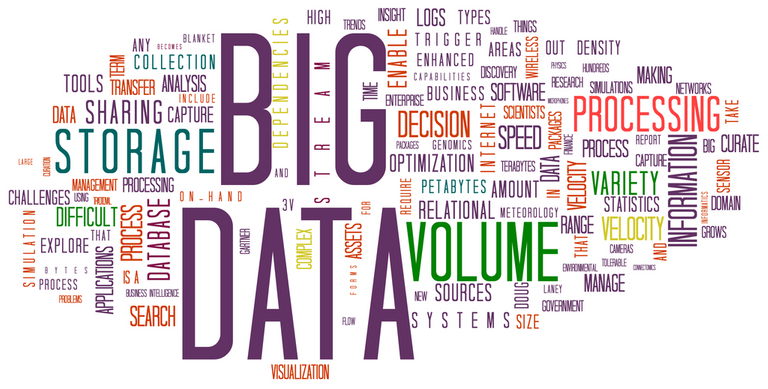Today, bigdata is so popular that many companies are using bigdata technology to find something hidden in a bunch of data. The media companies are using bigdata technology in analyzing the national statistics to find something valuable or unknown. Banks are analyzing the tens of petabytes of payment data of their customers to build an early warning system for credit risk. The healthcare companies are collecting millions of medical histories of the people who have suffered same or similar symptoms to extract some patterns with which they can discover a cure for that disease or a way to understand those diseases or symptoms. Tesla is collecting the real driving records produced by the drivers who ride their semi autonomous driving car Model 3.

The offline stores, just like the Department for example, are not exceptions. Some department stores are using face perception technology to recognize their customers’s ages, sex or the physical traits. They are trying to collect data of their customers, their line of flow, favorite products, eye-catching designs and so on. When they use those data their sales rate are sore in general.
It is needless to say that the internet companies are using bigdata technologies here and their. Amazon is the famous company that use bigdata technologies from contents recommend algorithm to intelligent delivery system. Facebook is analyzing the posts of their users and the effect of advertisements that they exposed to their user’s timeline.
The first company, I think, that utilized bigdata technology in internet service was google. Google's core algorithm "Page Rank" collect the links in webpages and calculate the number of links that are linked in other webpages. If there is no link or only exit just a few links, "Page Rank" is useless. What make the incredible values of Google search engine are the voluntary links made by ordinary people. So we can say that what lies beneath the power of Page Rank is the power of data produced by the ordinary people.
Then we can ask this question : Who is the owner of Bigdata? In general, they say that the company that collects the data would be the owner of those data. But let me see this in another point. When you listen to your favorite songs, when you post your everyday lives on Facebook, when you search something in google, when you choose your favorite webtoon, when you ride a car, when you walk across the street, when you buy something at online shop, when you purchase goods at department store or even you don’t buy something and just do window-shopping, when you consult a doctor, when you are treated at a hospital, you produce data. If our daily activities become data and be used as valuable things, who is the owner of those data?
In the era of bigdata, every activities and decisions of each individuals produce data. Before the era of bigdata, the only thing that people do good for the department store is spend money to buy something. But now, when the IOT and bigdata are connected together, every activities become data - the flow of human traffic, the attentions of the customers, the reactions of the people when they meet their favorite colors or designs and so on. So the individuals give not only money but also valuable data. Even if the customers have no money and buy nothing, their activities produce valuable data for the owner of department store. Before the era of bigdata, when I had a headache it was just sick. My sickness may impos a burden on other people - family, relatives or neighbors. But in the era of bigdata, when I consult a doctor I update new data on the database of headache and the database would be helpful for others who have same or similar symptoms. So my sickness is not just my sickness. It is valuable activities that is helpful for the whole society. We are the original producers of those data.
So, we can ask the question again : who is the owner of bigdata? Is it owned by the collectors of the data i.e. agencies or companies? If we acknowledge the roles of original producers of the data, there would be no evidence that the companies or agencies have exclusive right of the data.
I think we can distinguish two owners of bigdata. First is the agencies or companies that collect the data. They use huge resources and great technologies to collect and process the data. So we should agree that they contribute something to make the data valuable. Those who can claim their right secondly are every individuals who produce the original data. Without their activities the technologies that process the data are useless.
In this point I can assert that it is proved that the basic income for everybody is reasonable and legitimate. Because every individuals produce data when they live their ordinary lives and these data are valuable for the whole society. In the industrial-age, it is not easy to demonstrate the contributions of individuals to the society they belong. The only clue that individuals contribute to the society that they belong is work (or labour). He and she work in factory or office and get paid by their contributions. Ironically in the era of bigdata, individuals can prove their contributions to the society by the data they are making. In other words, in the era of bigdata we can prove that individuals are always contributing to the society by their existences themselves. So it it is legitimate to give basic income to every individuals that constitute society and it is even illegitimate not to give basic income.
I'm not native English writer, so my article would have some grammatical errors. I beg your pardon in advance. Whenever I find errors, I'll revise my text as soon as possible. Thanks.